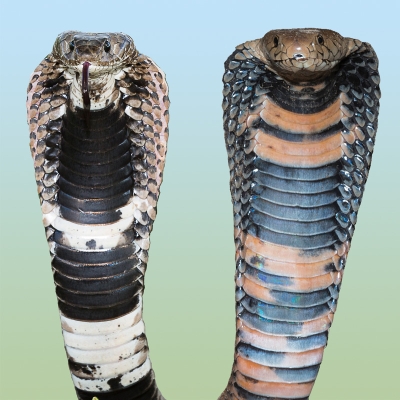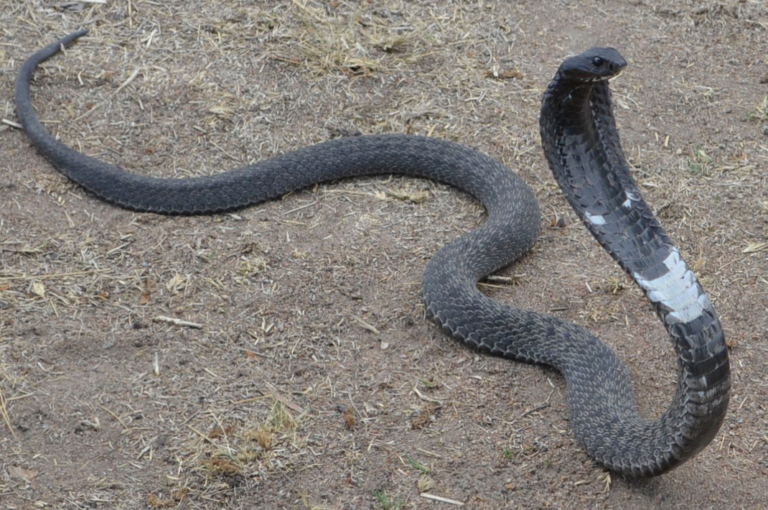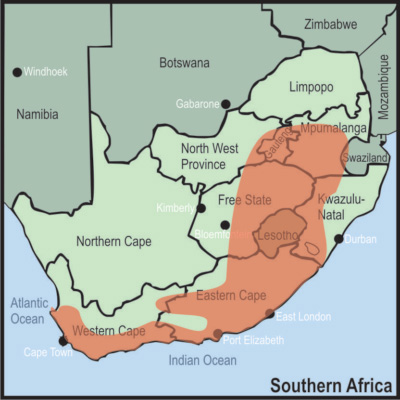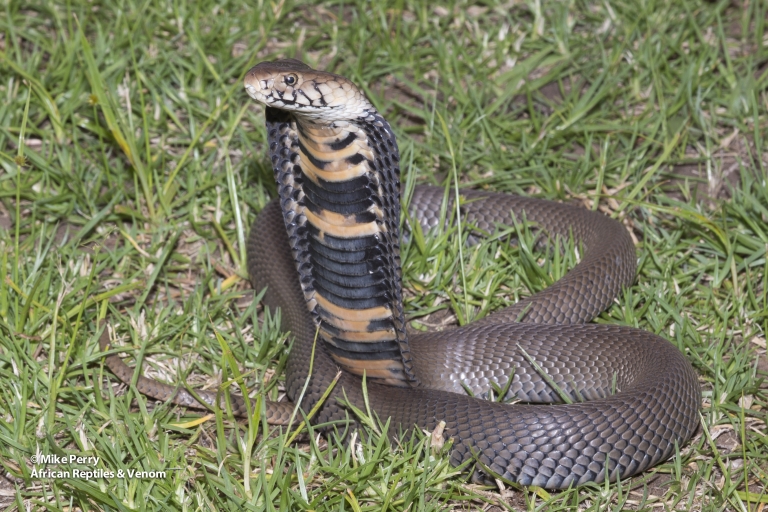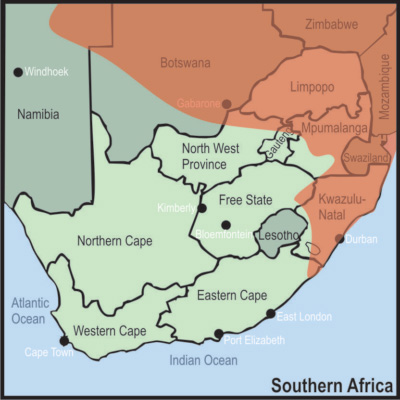How to tell the difference between a Rinkhals and Mozambique Spitting Cobra.
The first thing to consider in how to tell the difference between a Rinkhals and Mozambique Spitting Cobra is location.
Rinkhals prefer grasslands and Mozambique Spitting Cobras prefer savanna or bushveld. The distribution of both these snakes overlaps in a few areas. These overlap areas are generally the ‘escarpment grasslands’ of Western KZN and Mpumulanga.
Example towns where you might find both types of snakes are Sabie, Graskop, Vryheid, Ladysmith, Estcourt.
Other differences outlined below.
VS
Rinkhals
VS
Mozambique Spitting Cobra
Rinkhals
APPEARANCE
- Not shiny or glossy
- Body matt grey or black (Highveld)
- Barred in grey, yellow or orange rings (S. KZN, Cape fold mountains and Cape coast)
- Belly and throat jet black
- Throat usually with broad white bands (rarely absent)
- Has keeled scales (each scale has a central ridge)
HABITS & HABITAT
- Rinkhals give live birth
- Prefers grasslands
BEHAVIOUR
- Rinkhals are mostly active at daytime (diurnal)
- They usually ‘throw‘ their venom by rearing and striking
- Often rears ‘high’ (two-thirds of the body off the ground)
Rinkhals Distribution
Rinkhals Gallery
Mozambique Spitting Cobra
APPEARANCE
- Shiny or glossy
- Body brown
- Each scale black-edged, or black between the scales, giving a netted appearance
- Belly and throat salmon pink or yellowish
- Throat with irregular black bars or markings
- Has smooth scales
HABITS AND HABITAT
- Mozambique spitting cobras lay eggs
- Prefers savanna or bushveld
BEHAVIOUR
- Mozambique spitting cobras are mostly noctural
- The can spit/spray venom from an un-hooded postion
- Rears low or medium high (one-third of the body off the ground
Mozambique Spitting Cobra Distribution
Mozambique Spitting Cobra Gallery
Thank you for reading out article on how to tell the difference between a Rinkhals and Mozambique Spitting Cobra. We hope to have given you good insight and remember to contact your nearest snake catcher for assistance, or request advice on our Facebook group, Snakes and Snakebite of Africa.

